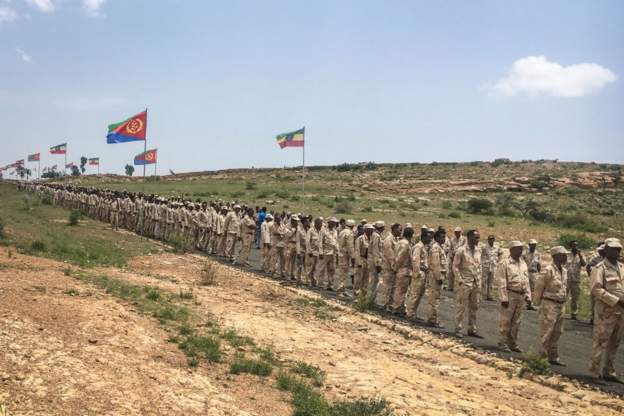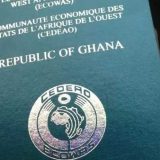The Eritrean government has welcomed the impending removal of the country from a blacklist of nations that the US accuses of “not fully co-operating” with anti-terrorism efforts.
Information Minister Yemane Gebremeskel told the BBC that the “categorisation was erroneous” in the first place, adding that the country’s removal from the list was “better late than never”.
“Eritrea’s track record on fighting terrorism has been impeccable throughout the past decades,” he said.
The US put Eritrea in the category in May 2017, basing its decision on allegations that the Eritrean government had been funding the al-Shabab militant group, based in Somalia. The US has designated the group a terrorist organisation.
Those very allegations had earlier in 2009 led the UN Security Council to impose a two-way arms embargo on the country. The sanctions also included targeted travel bans and asset freezes against individuals in the government of President Isaias Afewerki.
But the Security Council lifted the measures in November 2018, saying there had been no proof to back the claims that Eritrea was supporting terrorist groups in the region.
Eritrea had been vindicated. It even called for compensation for the years of what it termed “unjustified sanctions” that had done great damage to the country’s economy.
Many of the latest changes are the result of a peace deal that Eritrea signed with neighbouring Ethiopia last July, ending two decades of a bitter border dispute.
Eritrea has often been described as one of the most secretive countries in the world. It continues to be condemned by human rights groups for various abuses – including its indefinite military conscription.





